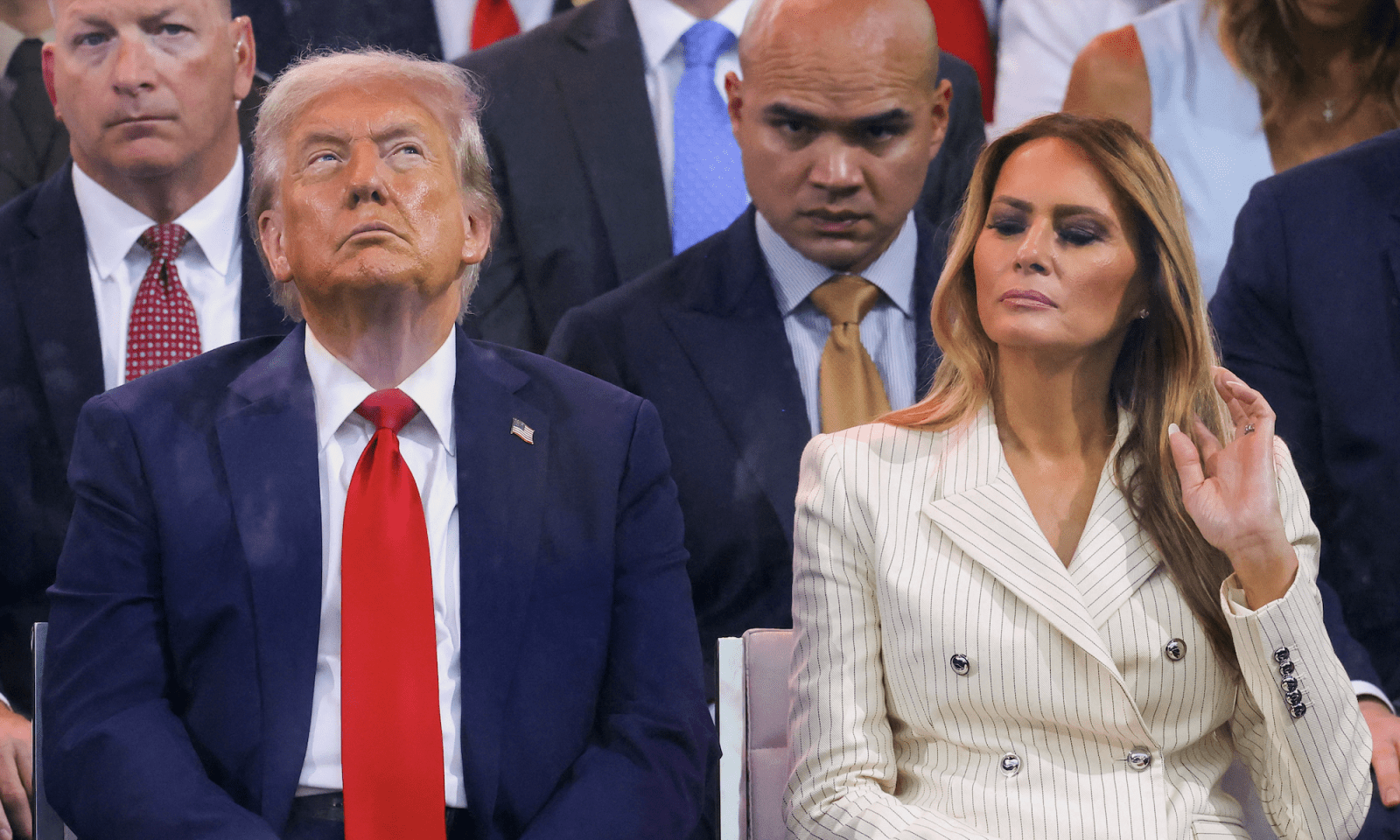Could Deportation Policies Target the President’s Own Family?
The idea of deporting naturalized U.S. citizens has surfaced multiple times under former President Donald Trump, most notably during a visit to a Florida detention facility for immigrants. While such a policy might seem targeted at foreign nationals, it could potentially have repercussions closer to home—impacting members of Trump’s own family.
During an episode of Joy Reid’s YouTube podcast, Representative Pramila Jayapal (D-Wash.) discussed this controversial notion. The conversation also touched on Trump’s proposed “Alligator Alcatraz” detention center in the Florida Everglades. Both Reid and Jayapal highlighted remarks made by Trump during his visit to the immigrant detention camp, where he suggested that even individuals born in the United States could be subject to deportation.
“They’re not new to our country. They’re old to our country. Many of them were born in our country,” Trump remarked. He went on to say, “I think we ought to get them the hell out of here, too, if you want to know the truth.”
This rhetoric was not limited to casual commentary. During a meeting with El Salvadoran President Nayyib Bukele in April, Trump reportedly floated the idea of sending so-called “homegrowns”—individuals born in the U.S.—to El Salvador’s CECOT prison complex. The facility is widely criticized for its severe human rights violations.
Joy Reid raised concerns about the implications of granting such sweeping powers to any sitting president. She speculated that future administrations could use similar policies to target political adversaries, including Trump’s wife and children.
Reid explained, “If you give the president of the United States monarchical-like powers to say, ‘I don’t like your views, I don’t like your take on issues, I don’t like that you’re too liberal, you’re not conservative enough, I’m just gonna take away your naturalized citizenship,’ then… If we ever get a Democratic president, they could say, ‘I don’t like Melania Trump. She wasn’t born here. She was born in Slovenia. She is a naturalized citizen. She’s outta here.’”
She further noted that Trump’s late ex-wife, Ivana Trump, who hailed from Czechoslovakia, was not a U.S. citizen at the time of her death. Her three children with Donald Trump—Donald Jr., Eric, and Ivanka—are all U.S. citizens, but their mother’s foreign birth could become a point of contention. Reid imagined a scenario where a future administration might argue, “You know what? I don’t like the Trumps. And so we’re gonna denaturalize all of the Trump children, whose mother was a foreigner at the time.”
Although no naturalized citizen has been deported under Trump’s presidency, there have been indications that the administration considered using denaturalization as a tool. White House press secretary Karoline Leavitt once stated that the government had not ruled out launching a denaturalization investigation into Zohran Mamdani, a New York City mayoral candidate. Republican Congressman Andy Ogles (R-Tenn.) even called on Attorney General Pam Bondi to initiate proceedings against Mamdani over rap lyrics he wrote in 2017.
These discussions raise significant legal and ethical questions about the scope of presidential power, the integrity of the immigration system, and the potential weaponization of denaturalization laws. As debates continue, the prospect of such policies being turned inward—against those closest to the president himself—adds a surreal dimension to an already contentious issue.







